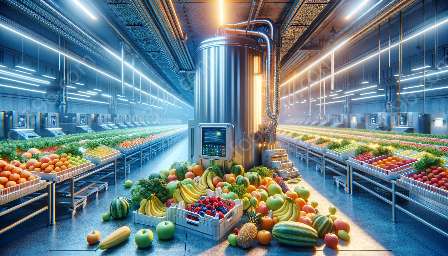Fermentation is a remarkable process that has been used for centuries in food preservation and processing. It has also significantly contributed to the diverse and flavorful world of food and drink.
The Art and Science of Fermentation
Fermentation is a natural process involving the transformation of organic substances by microorganisms such as bacteria, yeast, or fungi. This process is well known for its ability to convert sugars into alcohol, acids, or gases, resulting in a wide range of transformative effects on food and beverages.
Not only does fermentation enhance the flavor and nutritional value of food, but it also aids in preservation, extending the shelf life of perishable produce without the need for modern refrigeration or synthetic preservatives.
The Role of Fermentation in Food Preservation and Processing
Fermentation has long been recognized as an effective method for preserving food. In ancient times, civilizations used fermentation to prevent food spoilage and ensure a stable food supply, especially during harsh winters or long journeys. This provided a means to store and consume foods that would otherwise spoil quickly.
One of the most well-known fermented food preservation methods is the production of sauerkraut, a fermented cabbage dish. By harnessing the power of beneficial bacteria, cabbage undergoes transformative changes that not only enhance its flavor but also preserve it for extended periods.
Fermentation and Food Diversity
Fermentation is a key player in the creation of diverse and flavorful foods and drinks across cultures. From the tangy pickles of Eastern Europe to the sophisticated flavors of traditional soy sauce in Asia, fermentation has played a crucial role in shaping culinary traditions worldwide. The introduction of fermentation to food processing has led to the production of diverse culinary delights, from tangy cheeses to rich and complex beverages.
Fermentation’s Impact on Food and Drink
The impact of fermentation on the world of food and drink is profound. Not only does it contribute to the creation of unique and enticing flavors, but it also adds to the nutritional value of many foods. Yogurt, for example, is a fermented dairy product known for its probiotic properties, providing beneficial bacteria to support gut health.
Fermented beverages, such as beer and wine, owe their complexity and distinctive taste to the fermentation process. The transformation of sugars into alcohol and other compounds by yeast creates an array of aromas and flavors that bring joy to the palates of many.
Challenges and Innovations in Fermentation
While fermentation has been celebrated for its myriad benefits, there are challenges and opportunities for innovation in modern food production. The controlled and consistent fermentation of products requires strict adherence to quality standards, temperature control, and monitoring to ensure safety and desirable outcomes.
Additionally, advances in food science have led to innovative uses of fermentation, such as the development of plant-based alternatives to traditional dairy products using fermentation techniques. These innovations offer sustainable and ethical options for food and drink enthusiasts while reducing the environmental impact of traditional animal agriculture.
Embracing Fermentation in Modern Times
As interest in natural and traditional food preservation methods continues to rise, fermentation has regained popularity among food enthusiasts, chefs, and home cooks. Preserving and processing foods through fermentation not only adds complexity to flavors but also aligns with the growing consumer demand for transparent and health-conscious food production.
The Future of Fermentation
The future of fermentation holds promise in transforming the way we approach food preservation, processing, and consumption. With ongoing research and innovation, fermentation is poised to play an even greater role in addressing food sustainability, food waste reduction, and the creation of novel food and beverage options that cater to diverse dietary preferences and needs.


















